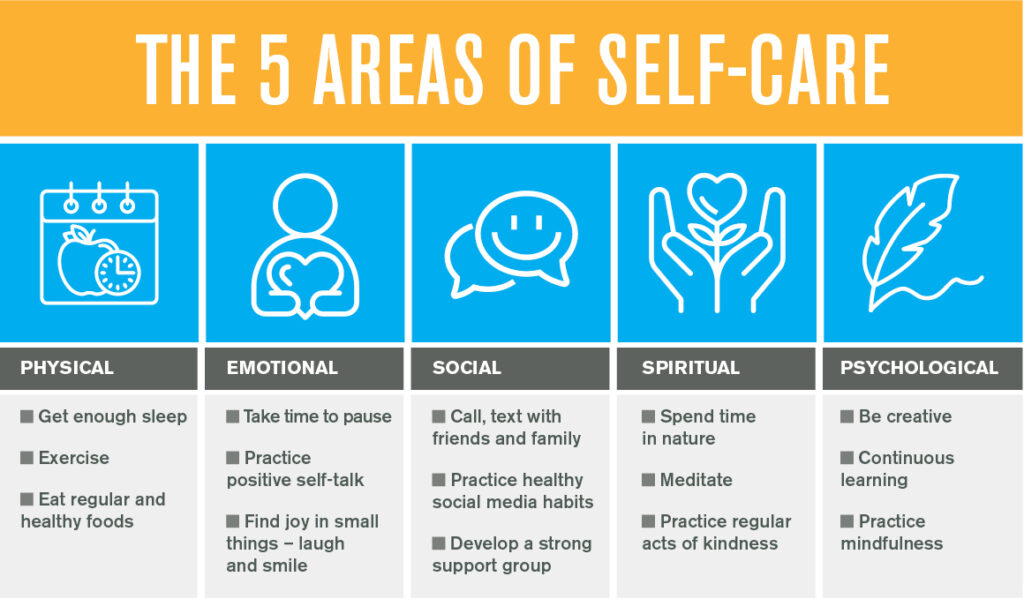What is self-care and how can you practice it?
How can you improve your well-being by practicing self-care?
The World Health Organization definition of self-care is “The ability of individuals, families and communities to promote health, prevent disease, maintain health, and to cope with illness and disability with or without the support of a healthcare provider”. It is about looking after yourself so that you can be healthy and well enough to do your job, help and care for others, and accomplish everything that you need to accomplish in a day.
What is Self-Care?
The ultimate goal of self-care is to maintain physical and mental health, which is achieved by engaging in various activities that will help you get there. Such activities that are connected with self-care are those that have a positive impact on our emotional, physical, social, and spiritual well-being. As such, it is about whatever brings you joy in the long run, it does not have to cost anything, it is about doing things that you enjoy.
Why is Self-Care important, what are the benefits of practicing it?
Self-care can assist in reducing the impact of negative emotions like anxiety, stress, anger, and sadness, and help us maintain balance in our lives. It also helps to build a sense of purpose and belonging, motivating us to achieve life goals and generally improve our quality of life.
It can also be used to help and have a positive impact on those suffering with mental health disorders, such as, depression, anxiety or stress.

- Physical Self-Care includes prioritizing sleep, adopting an exercise routine that you keep to, and having a healthy diet, as well as healthy hygiene.
- Emotional Self-Care is giving yourself permission to take a pause, say “no” to things that cause unnecessary stress, take time out for yourself. It is about managing stress and practicing empathy.
- Social Self-Care involves having supportive family and friends, building a community of care, and practicing healthy social media habits.
- Spiritual Self-Care starts with daily acts of kindness, meditating, and pursuing the beliefs and values that are important to you.
- Psychological Self-Care involves learning new things, engaging motivation, practicing mindfulness and creativity.
How to start a self-care routine
- Determine which activities bring you joy, restore your balance, and give you energy.
- Incorporate a small positive behavior into your weekly routine.
- Build on the behavior and reflect on how you feel.
- Add more practices over time.
- Gather support for your practices from friends, family, community, workplace, or your healthcare provider.
Self-care can have a positive effect on living your healthiest life. Investing in self-care is investing in your holistic well-being. It is not selfish, it is necessary to be available, kind, and empathetic to yourself and others.

